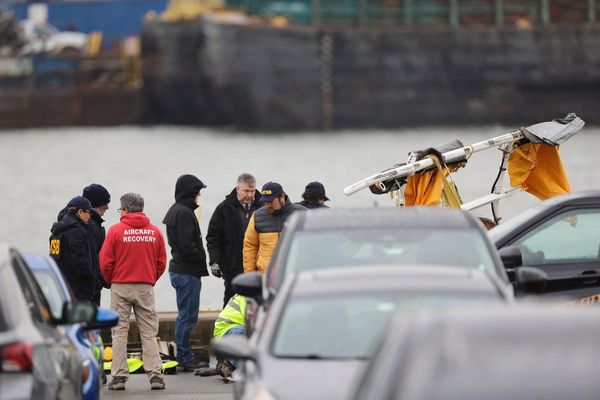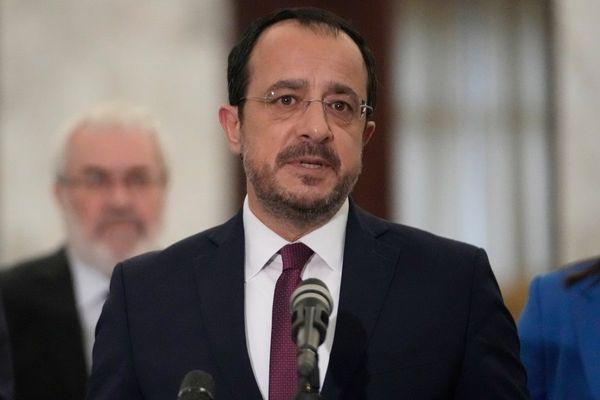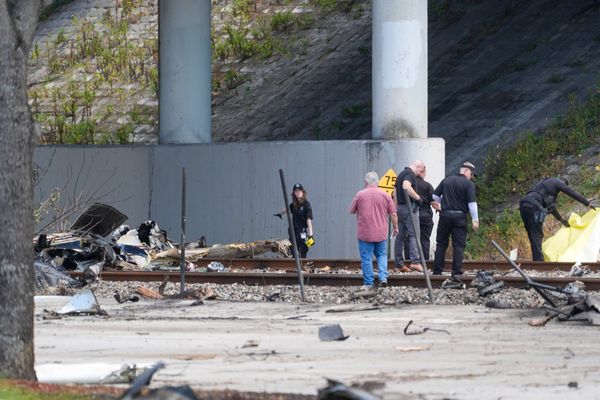
Worse atrocities than those discovered in Bucha are likely to be uncovered in other areas seized from Russian invaders, president Volodymyr Zelenskiy has warned, ahead of his appearance at the UN security council on Tuesday.
As he built support for an open investigation into the killings in Bucha, Zelenskiy said: “And this is only one town. One of many Ukrainian communities which the Russian forces managed to capture. Now, there is information that in Borodyanka and some other liberated Ukrainian towns, the number of casualties of the occupiers may be even much higher.” The town of Borodyanka lies 25km (16 miles) west of Bucha.
The president accused Russia of trying to “distort the facts” about the alleged atrocities and claimed it was “already launching a false campaign to conceal their guilt in the mass killings of civilians in Mariupol”.
“They will do dozens of stage interviews, re-edited recordings, and will kill people specifically to make it look like they were killed by someone else,” he said. “Probably, now the occupiers will try to hide the traces of their crimes. They did not do this in Bucha when they retreated. But in another area it is possible.”
The scale of the killings around Kyiv is still unclear. Ukraine’s chief prosecutor, Iryna Venediktova, has said 410 civilian bodies were recovered in the greater Kyiv area after Russian troops withdrew, while the mayor of Bucha, Anatoly Fedoruk, said the town had buried 280 people in mass graves because its cemeteries were under fire. Zelenskiy, who visited Bucha on Monday, said there was information to suggest more than 300 people were killed and tortured there.
Europe’s worst conflict in decades, sparked by Russia’s invasion on 24 February, has already killed 20,000 people, according to Ukrainian estimates. The UN refugee agency said on Monday more than 4.2 million refugees had fled the country.
Earlier, Ukraine’s foreign minister, Dmytro Kuleba, said evidence of civilian killings in Bucha were just the “tip of the iceberg”. Speaking at a joint press conference with the UK foreign minister, Liz Truss, he said the “horrors of Bucha, Mariupol, and other places” demand “serious G7 and EU sanctions”.
German Chancellor Olaf Scholz said on Monday that Vladimir Putin and his supporters would “feel the consequences” of events in Bucha and that western allies would agree further sanctions against Moscow in the coming days.
Joe Biden’s national security adviser, Jake Sullivan, said new US sanctions against Moscow would be announced this week. The US State Department said it was supporting an international team of prosecutors and experts to collect and analyse evidence of atrocities.
Biden has called for the Russian president to be tried for war crimes, saying: “We have to gather the information. We have to continue to provide Ukraine with the weapons they need to continue to fight, and we have to get all the detail [to] have a war crimes trial. This guy is brutal and what’s happening in Bucha is outrageous.”
The European Commission president, Ursula von der Leyen, said the EU was ready to send investigations teams to Ukraine to document alleged Russian war crimes and crimes against humanity.
Russia has denied any accusations related to the murder of civilians and claimed it would present “empirical evidence” at the UN security council meeting on Tuesday to prove its forces were not involved.
Russian forces pulled back from areas around the capital Kyiv in the face of unexpectedly lethal and mobile Ukrainian resistance using western anti-tank weaponry. Moscow painted the withdrawal as a goodwill gesture at peace talks, which last convened on Friday. Negotiators had been due to convene on Monday, but neither side has given an update on the talks.
In other developments:
The US stopped Russia paying holders of its sovereign debt more than $600m from reserves held at American banks, in a move meant to eat into Moscow’s holdings of US dollars. The move would force Moscow to decide whether it would use dollars it has access to for payments on its debt or for other purposes, including supporting its war effort, a Treasury spokesperson said.
China’s foreign minister, Wang Yi, spoke to his Ukrainian counterpart, Kuleba, in a phone call on Monday, with Beijing again calling for talks to end the conflict. Wang said: “Wars end eventually. The key is how to reflect on the pain, to maintain lasting security in Europe and establish a balanced, effective and sustainable European security mechanism.” Kuleba said they both shared “the conviction that ending the war against Ukraine serves common interests of peace, global food security and international trade”.
A team from the International Committee of the Red Cross (ICRC) was stopped during an attempt to reach Mariupol to evacuate civilians, and is now being held in a nearby town, a spokesperson said.
Germany expelled about 40 Russian diplomats in response to what its foreign minister, Annalena Baerbock, called the Kremlin’s “unbelievable brutality” and “boundless will to exterminate” in Ukraine, and it temporarily took control of the Russian gas giant Gazprom’s German subsidiary to secure its energy supply.
France later announced it was also expelling a number of Russian diplomatic personnel, saying their actions were “contrary to our security interests”.
The US said it would ask the UN general assembly to suspend Russia from the body’s human rights council. “Russia’s participation on the human rights council is a farce,” Washington’s ambassador to the UN, Linda Thomas-Greenfield, said.
with Reuters










